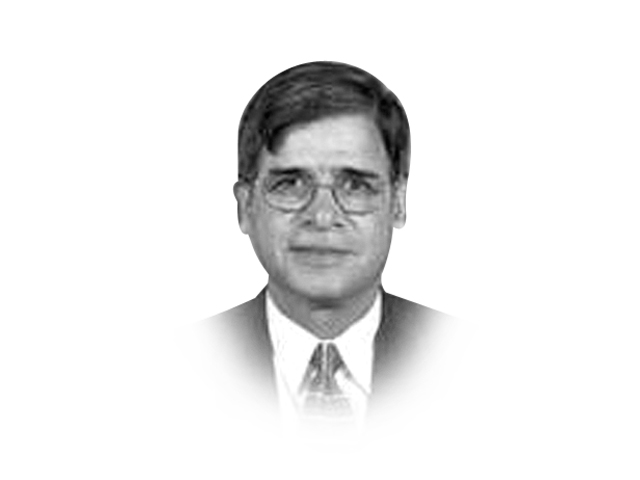
In September 1980, barely 11 months after Iran’s Islamic revolution, its neighbour Iraq invaded it. Iraq had the full blessing of its Arab neighbours, plus some superpowers in the West who stoked the fire through provision of war supplies. For eight years, Iran bled — but it did not bleed to death. The irrepressible nation survived. But in the eight-year battle, both nations suffered the demise of millions of people, mostly innocent civilians. Like Iran, Iraq has an overwhelming population of Shias — between 65 and 70 per cent of the total population.
According to some, this revolution was confined to Iran’s geographical limits and the war prevented the revolution from spreading to Kuwait, Bahrain and the eastern province of Saudi Arabia. Some more Arab states entered the USSR-Afghan War with their cryptic strategy to help the extremists in Pakistan and Afghanistan. The Anjuman Sipah-e-Sahaba was formed in the early 1980s.
Bahrain acquired independence from the UK in 1971. Two-thirds of its population had close ties with Iran and hence, Iran laid claim on Bahrain. In February 2011, a protest was held in Manama, which ended in police brutality. Some 80 people were killed and nearly 3,000 arrested, of whom five were killed in police custody. Police brutality was on the rise.
In the 1960s, the Shia community of southern Lebanon lived very quietly, as it had been for centuries. They were so peaceful that they were denigrated to the extent of being termed the Mitawalis (mausoleum caretakers). Most of them were from the middle and lower-middle classes.
An avant-garde Iranian cleric, Imam Musa Sadr, emerged in Lebanon and began organising the marginalised Shia community to rebel against the community’s domination by a handful of feudal families. The Imam felt that his task was to struggle against the feudals and awaken the oppressed community out of its deep slumber. While the Shias were 35 per cent of the population demographically in Lebanon, each government discriminated against and disfranchised them to unfairly show them to be 10 to 15 per cent population-wise. Then, their land of south Lebanon became occupied by the Palestinians and then the Israelis. The Shias of southern Lebanon tolerated that. However, on March 17, 1974, in Baalbek, Bekaa valley, Imam Musa delivered an important speech:
“Starting from today, we will no longer complain nor cry. Our name is no longer the Mitwalis; our name is ‘men of refusal’. ‘Men of vengeance’. ‘Men who revolt against tyranny’ even though this costs us our blood and our lives.”
Some 50,000 rifles fired at once to greet the Imam’s prophetic words. The firing was so intense that in the hail of the falling bullets, nearby trees were stripped of their greenery. Imam Musa was followed by Hasan Nasrullah, who is the head of Hezbollah. However, the community’s resolve has remained unchanged.
Sadly, while the Shia populations of south Lebanon may be accommodated, the Shia populations in Pakistan face difficulty.
Published in The Express Tribune, March 19th, 2013.
COMMENTS (14)
Comments are moderated and generally will be posted if they are on-topic and not abusive.
For more information, please see our Comments FAQ














No body understood what the writer is trying to warn about - shias are a peaceful group but if you will push them to the wall then you will create another Hezbollah which is may be militant but does not bow down to any one - even Israel had to fall back.
@Roshan The fate of sunnis in iran and iraq is not diffrent either but worst than shia in pakistan who are enjoying more freedom and doing quite well in every field even in bearocracy too.
Quite information in the context of Shia suppression. Unfortunately, the fate of Shia of Pakistan is not different either.
What most of writer ignore about 1979 revolution is elimination of Kingdom, a tyrant king was dethroned through armed struggle to ensure democratic, economic and social rights. Although Imam Khemonei was later painted as fanatic Shia leader, not a popular revolutionary leader. This scenario was exploited by neighboring gulf states and Saudi Arabia which led to their proxy war in Pakistan through SSP etc.
There is nothing wrong in being a SHIA.
Geopolitically it may be a headache to the Sunnis Such perceptions are a result of bigotry.
:Let's get over our small prejudices, please.
There is no Shia persecution in Pakistan. Shias are part of the Government, bureaucracy, army, business etc. Shias and sunies get along well. There are only some "unknown" elements that attack Shias........ and sunies. So please don't make is sound as though it is problem with the society.
Really @Ali Tanoli? Shia under Saddam had no problems? Really? If you think Shia killing is post Iran thing, Check Khairpur Tehri incident of 1963 !
@Abbas bro, Shias peoples start getting political and finansional support from iran revolution and that was the main factor behind regional govt got worry other wise shia bein living in those countries for centuries even with shia govt in syria with sunni mejority country and saddam in iraq with sunni govt where mojority are shia. even lot of peoples are married in bet two sect.
The comments by some of the readers just prove the writer correct. There is incredible prejudice against Shias. And a complete denial of it and the corresponding genocide.
@tanoli : Dear ali pls face the reality
You started it well and pretty accurate with your details too but just seems like an abrupt ending. It is true though that the Shias have been persecuted everywhere in the world and country a Shia genocide is taking place in Pakistan. Unfortunately the majority is not doing enough to stop the killings and finish off the evil.
@Ali Tanoli: your inability to put a sentence together is breathtaking.
For the first time i agree with brother ali tanoli
What is this some kind of speech hahahahhaha